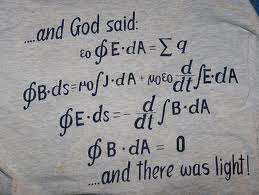So, I am doing pretty well so far in S104: Exploring Science. My iCMA (interactive computer marked assignment) scores are: 80% and 100% (and the 80 was me not understanding how the system worked!) while my TMA (tutor marked assignments) scores are: 96% and 92%. I'm not so happy with the 92%... but I understand where I dropped marks!
I am two-thirds of the way through Book 3: Energy and Light and I'm really enjoying it. I'm (re)discovering a love of mathematics and equations (with the help of the fabulous ScaryCalc). However, I'm struggling a little with problem-solving.
Activity 7.1 asked us to solve a problem, using the problem-solving skills we developed in chapter 4, and using the information provided as well as relevant equations taught throughout the book.
Imagine that you are stuck in your car in bad weather, trying to boil water to make yourself a hot drink.
A cup contains 150 g of water at 19 °C. A small heater is immersed in the water and connected to a 12 V car battery. An electric current of 13 A flows through the heating element. Find the time taken to heat all of the water to 100 °C and for one-third of the water to vaporise.
The specific heat capacity of water is 4.2 ×103 J kg-1 °C-1 and the specific latent heat of vaporisation is 2.3 × 106 J kg-1. When answering the question, assume that the cup is very well insulated, i.e. that all the electrical energy supplied is transferred to internal energy in the water. Will this assumption lead to an answer that is an overestimate or an underestimate of the time taken?
We are advised to plan the problem out before doing the calculations - so I start by writing exactly what I've been asked to find out: How long does it take to heat 150g of water to 100°C and to vaporise 50g of water?
Then I make a note of all the information I have been given; followed by a list of the equations I may want to use. All well and good - I wrote down a couple of equations that turned out to be superfluous, but better too many than too few, I always say.
I attempted this last night, in a fug of exhaustion and desperation brought on by the realisation that I am falling behind a little. It did not go well, so I retired to the sofa and watched Kurt Russell attempt to save America from the terrists in 1980something.
Today, at lunchtime, the activity went better. I did achieve the correct answer, to the correct number of decimal places, and everything.
This would appear, on the face of it, to be good news - but wait! I had solved this problem in a particularly long-winded way. You may think this doesn't matter; however, part of what this chapter is trying to get us to do is rearrange and combine equations where necessary. I only succeeded partly in this quest.
I think I understand how the book got to the result; I'll have a proper look when I get home. I'll probably ask The Husband to try to explain it to me too.
Today I am not feeling quite so confident about things. I am hoping that with practise I will begin to find this aspect of the course easier, because at the moment it is not coming naturally.
The information itself is terribly interesting and about to get more so; and what's more, I have two new books to read, which are bang on topic:
"Six Easy Pieces" by Richard Feynman and "We Need to Talk About Kelvin".
Bring on the E = mc2!


